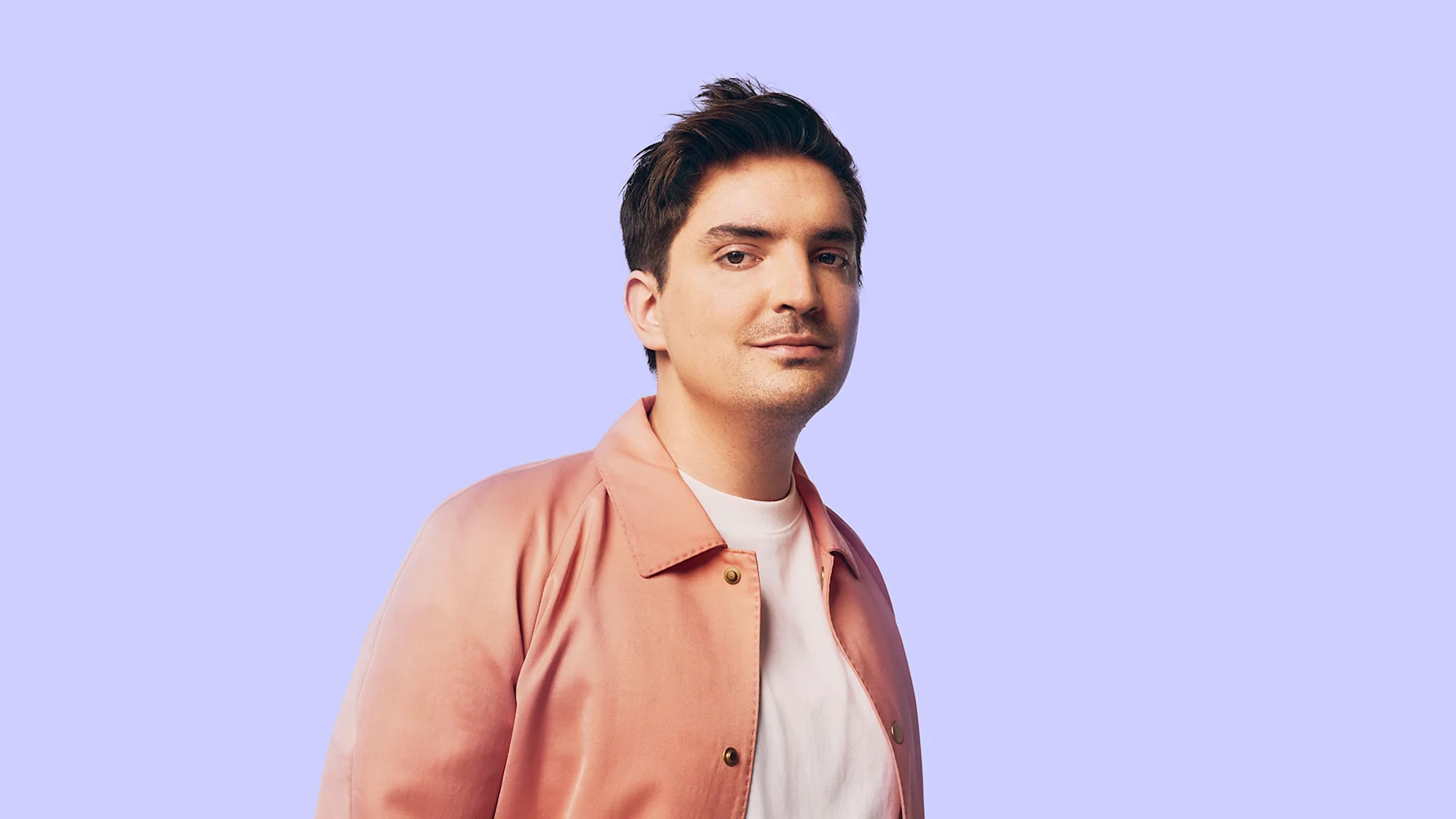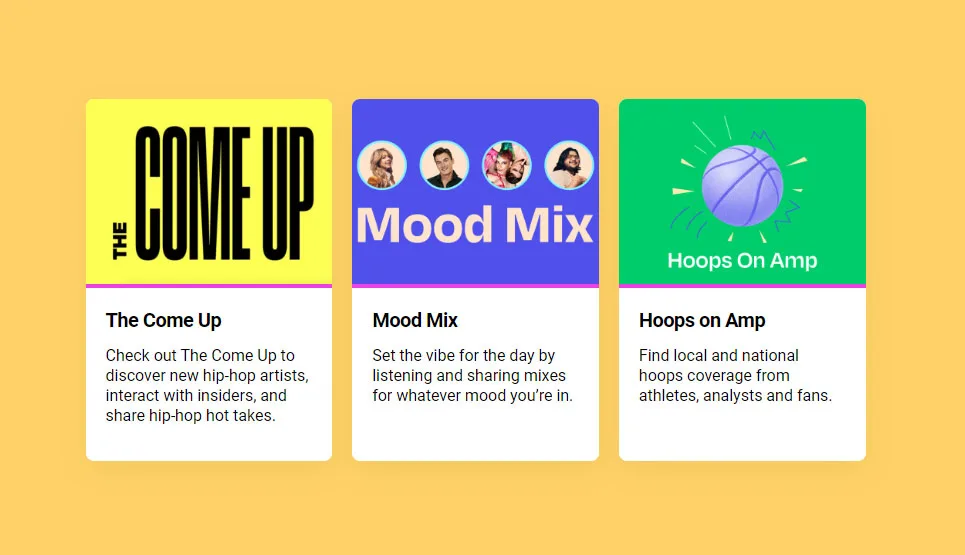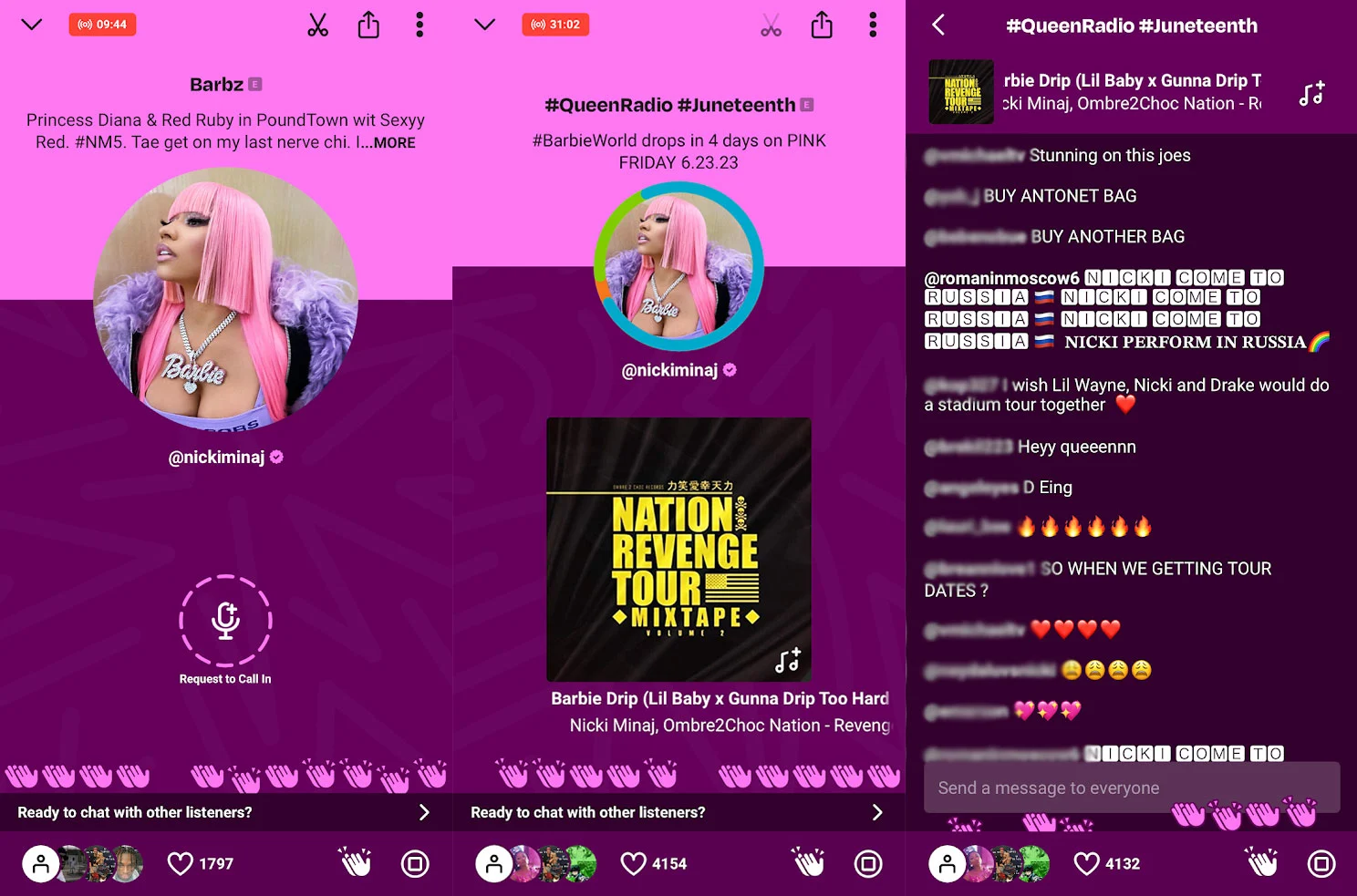[ad_1]
Last spring, Amazon launched its long-rumored live audio-streaming platform, Amp. The pitch was to reinvent radio with “an infinite dial of shows.” Amp offers users access to a vast, built-in music library to create their own DJ sets with. No need to buy songs or flirt with the DMCA, just make a playlist, go live, talk in between tracks, follow the chat and even invite callers. When I wrote about it a year ago, it showed promise, but it was iOS only, light on users and had a limited feature set.
A little over a year later and Amp is reaching an important milestone: It’s finally available on Android. Amp is Amazon’s first home-grown streaming platform and the year-plus stint as an Apple exclusive meant it enjoyed a level of technical predictability and a self-imposed restriction on growth and user numbers. But as the doors open to the other half of the mobile universe, it’s about to be exposed to the full reality of competing in an already busy social-creator landscape.
Growing beyond iOS is an important move for Amp, even if the platform technically remains in beta (and US-only). But the wider reach of Google’s operating system — from TVs to Chromebooks and beyond — will be a decisive step in the process of Amazon proving it can build a viable streaming platform from the ground up (rather than acquire an already successful one).
You can, of course, find DJ sessions and internet radio in myriad places online. Whether it’s big platforms like YouTube and TikTok or more direct rivals like Stationhead or Tidal (via its Live Sessions feature) and even Amazon Music’s own DJ Mode, there are several destinations for live curated music streams. Of course, let’s not forget Amazon-owned Twitch, which is teeming with tune spinners. Oh, and there’s obviously FM radio, too. This obviously begs the question: What makes Amp unique?

Amazon
“It’s very much like Sirius meets YouTube,” Zach Sang, one of Amp’s contracted creators, and former broadcast DJ told Engadget. “It’s real life, legacy career broadcasters mixed with the future of those broadcasters. It’s everybody coming together, it’s radio democratized. It’s a way that radio genuinely should be programmed: for people and not for profit,” he added. From a user’s point of view, Amp’s main differentiator appears to be its focus on radio and radio-style shows specifically. Plus that built-in music library (Stationhead, for example, requires you to have either Apple Music or Spotify at your own cost).
I asked user Christina “Criti” Gonzalez, who hosts her own daily show, how she’d describe Amp. “[It’s] a very unique, weird place where you’re able to listen to all the music you’ve forgotten about, didn’t know about and crave to hear, again with personalities and so many people of all different walks of life that have one common interest – music.”
Amp Co-Founder, Matt Sandler – who used to work at LA’s KROQ FM – explained that he felt all of the existing options weren’t quite giving listeners or creators what they wanted. “If you posted a job for KROQ and an on air position, you’d get hundreds and hundreds, if not thousands of submissions and people who wanted to curate music and talk to the community on air,” he told Engadget. “There have been lots of services built around live connection or music or community. One of the things that I think will drive the success of a business like this is really that balance between scale and connection.”
Amp signed deals with celebrities and established presenters such as Nicki Minaj, Joe Budden, Nick Cannon and the aforementioned Sang to give the platform some known-name appeal, and it’s done so without creating much of a barrier around them compared to regular creators. Your show can sit right next to Nicki Minaj’s in the listings. Although the roster covers large genres like hip-hop, sports, country and pop there’s not much in the way of alt/indie or electronic in that lineup right now.
Unlike Clubhouse, which enjoyed an early surge of popularity, Amp has largely gone under the radar since launch. “The thing we’re maniacally focused on every day is making sure that the product is right before stepping out and bigger and bigger fashion,” Sandler said. But many people I’ve mentioned it to aren’t aware of it – and Amp’s not even included on the list of Amazon products/services Wikipedia page.

Amazon
The app is clearly a lot busier than when I wrote about it just after launch, but the average number of listeners for most shows remains frustratingly low for most shows (based on multiple user reports and other publicly visible data). But several users explained they weren’t discouraged. “The community that it has right now, it’s a small enough space for people to feel like they’re connected, even if they don’t know each other.” Gonzalez said.
At the beginning, according to Sandler, even Amp’s leadership was unsure in which direction the platform would unfold. There was the possibility that the big-name artists would dominate while regular users gravitated to being listeners. In reality, it’s the smaller, home-grown shows and the aforementioned community that has made Amp a nice place to hang out.
“The culture there is so inviting.” Gonzalez said. “I feel like other social media sites can turn negative quickly. I haven’t had much experience with that on Amp and I appreciate that.” Adding, ”It’s crazy what the experience on Amp has done, because I truly honestly say to anyone that’s not an Amp to join it, because it really will change your perspective.”
One of the main complaints I had with Amp right after launch was that hosts needed at least one listener to be able to play a song and often that meant… waiting. There was also no way to communicate with any listeners you did have. Today the awkward waits are (mostly) gone and each stream has its own chat room which has switched it from a one-directional platform to the collection of friendly gatherings that it has become today.
Several creators and listeners have told me they’ve created genuine connections and friendships that have spilled over into real life. The chat rooms in shows are a rare mix of positivity, musical discourse and humor. Trolling and negativity is unusually rare and it’s obvious there’s a real sense of commitment to the app. But at some point it needs to expand to stop it becoming a circular economy where everyone is both a host and a listener.
Amp doesn’t share information about user numbers or demographics, but the typical host and listener right now, perhaps unsurprisingly, appears to mirror the generations that were brought up on mix tapes and burning albums to CD. Where sharing music was more tactile and a little bit slower. In the nicest possible way, the community energy often feels like the best bits of early internet chat rooms. Like many music-first spaces online, there’s little in the way of negativity, and while many creators may fall into a similar age group, a variety of backgrounds has been a defining factor since day one.

Amazon
The positive community is Amp’s to lose though. As it opens up to Android, the door to even more users opens, and with that the challenge of scaling up the platform while maintaining what keeps it special. And there’s also the matter of money. Right now, Amp pays out many of its hosts via an opaque creator fund. “One of the things that we’re focused on is making sure that creators can earn through the service over time, not just through the fund, but through other mechanisms as well.” Sandler said. When I asked about subs, tipping and other Twitch-esque ways to earn money he added “Those are all things you could easily imagine in the service.”
For now, the creator fund is helping keep hosts motivated, but Amp will need to provide realistic alternative revenue streams to keep creators around (and, of course, lure in more). But perhaps the bigger investment Amp needs is in itself. It’s hard to find much in the way of outward promotion of the app and the best tool for promoting its best creators are its own social channels. If Amp can make itself more visible, it can grow the user base which in turn makes that creator economy, be it tipping, subs and beyond, more viable.
There are also occasional technical issues that remind you the app is still in beta, which an injection of new users, on a new operating system no less, might exacerbate. Mostly, it’s small annoyances like the chat swallowing your last message. Occasionally, it’s more dramatic like a stream crashing or a host being booted out of their own show.
“The glitchiness causes some frustration. And, sometimes that can change your experience doing the show and with others listening. So once those kinks get ironed out, I feel like the creators will feel more comfortable and less anxious while they’re doing sets” Gonzalez said. Users have even coined the phrase “Amp be Ampin’” as a refrain to the inevitable quirkiness that happens every couple of weeks or after an update.
Where does the app go from here? “I think there’s a big opportunity for amp specifically to move charts and culture around the world. And that means personalities, spinning music, having conversations and developing communities that exist in the app but that have social currency outside of the app as well.” Sandler said. Sang on the other hand thinks it’s a way to keep the spirit of radio going. “It’s not like there’s any major radio stars on the come up. So it’s like, where are they going to come from? Let them come from Amp.”
Or, as Gonzalez was quick to point out, sometimes, it’s just about the music. “There are certain creators that talk through their experience or a memory or something like that. And it completely changes how I looked at the song to begin with” she said. “I love the community so much, but it’s also just the variety, being exposed to certain genres. So I love that and ever since I’ve been really addicted.”
All products recommended by Engadget are selected by our editorial team, independent of our parent company. Some of our stories include affiliate links. If you buy something through one of these links, we may earn an affiliate commission. All prices are correct at the time of publishing.
[ad_2]
Source link
